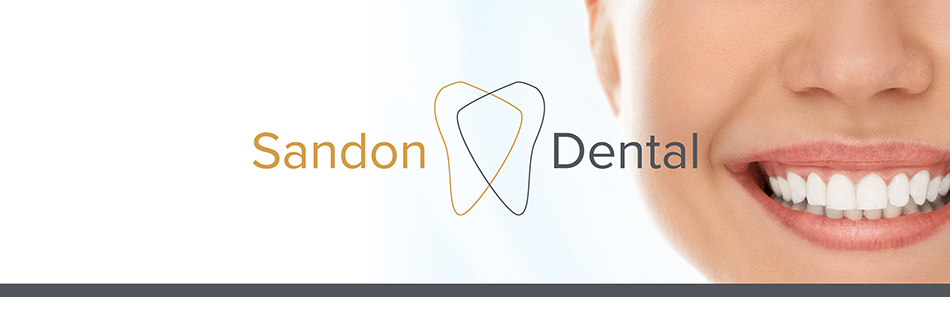Children's Corner

Here at Sandon, we understand that knowing how best to look after your children's teeth can sometimes be difficult. We encourage regular visits from our younger patients, aiming to make their experience as enjoyable as possible and helping them to establish good dental habits for life.
Here is some advice from the Oral Health Foundation which you may find useful.
When should I take my child to the dentist?
It is recommended that children should go to the dentist with their parents as soon as possible. You should then take them regularly, as often as your dental team recommend. This will let them get used to the noises, smells and surroundings and prepare them for future visits. The earlier these visits start, the more relaxed the children will be.
When will my child's teeth appear?
First (or 'baby' or ‘milk') teeth usually start to appear when your child is around 6 months old. All 20 baby teeth should appear by the age of 2.
The first permanent 'adult' molars (back teeth) will appear at about 6 years, before the first baby teeth start to fall out at about 6 to 7. The permanent 'adult' teeth will then replace the 'baby' teeth. It is usually the lower front teeth that are lost first, followed by the upper front teeth shortly after. All permanent teeth should be in place by the age of 13, except the ‘wisdom' teeth. These may appear any time between 18 and 25 years of age. All children are different and develop at different rates.
How should I clean my child's teeth?
Cleaning your child's teeth should be part of their daily hygiene routine.
- You may find it easier to stand or sit behind your child, cradling their chin in your hand so you can reach their top and bottom teeth more easily.
- When the first teeth start to appear, try using a toothbrush designed for children, with a small smear of fluoride toothpaste.
- It is important to supervise your child's brushing until they are at least seven.
- Once all the teeth have appeared, use a toothbrush with a small head and soft bristles in small, circular movements and try to concentrate on one section at a time.
- Don't forget to brush gently behind the teeth and onto the gums.
- If possible, make brushing a routine - just before your child goes to bed and at least one other time during the day.
- Remember to encourage your child, as praise will often get results!
Your teeth can get fluoride in a number of different ways, including from toothpaste, specific fluoride applications and perhaps the drinking water in your area. These can all help to prevent tooth decay. If you are unsure about how much fluoride you need in your toothpaste ask your dental team. You can check the level of fluoride on the packaging of the toothpaste. Children should be supervised when brushing up to the age of 7. You should make sure that they do not rinse but spit out the toothpaste, and that they don't swallow any if possible. This way the fluoride stays in the mouth for longer and will be more effective.
What sort of brush should children use?
There are many different types of children's toothbrushes, including brightly coloured brushes, some that change colour, some with favourite characters on the handle, and some with a timer. These all encourage children to brush their teeth. The most important thing is to use a small-headed toothbrush with soft, nylon bristles, suitable for the age of your child.
Using a power toothbrush can help to make brushing fun and make sure your child brushes for the correct amount of time.
What if my child is very nervous about going to the dentist?
Children can sense fear in their parents, so it is important not to let your child feel that a visit to the dental team is something to be worried about. Try to be supportive if your child needs to have any dental treatment. If you have any fears of your own about going to the dentist, don't let your child hear you talk about them.
Regular visits to the dental team are essential in helping your child get used to the surroundings and what happens there. A child can be much more anxious if it is their first visit to a dental practice. Pain and distress can happen at any time and it is important to prepare your child with regular visits.

